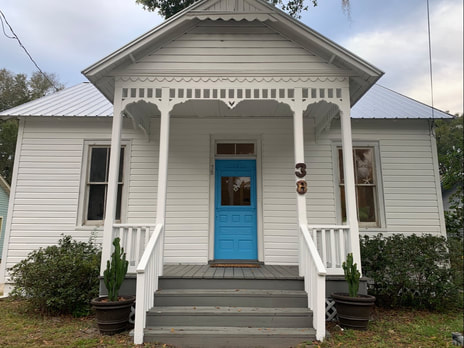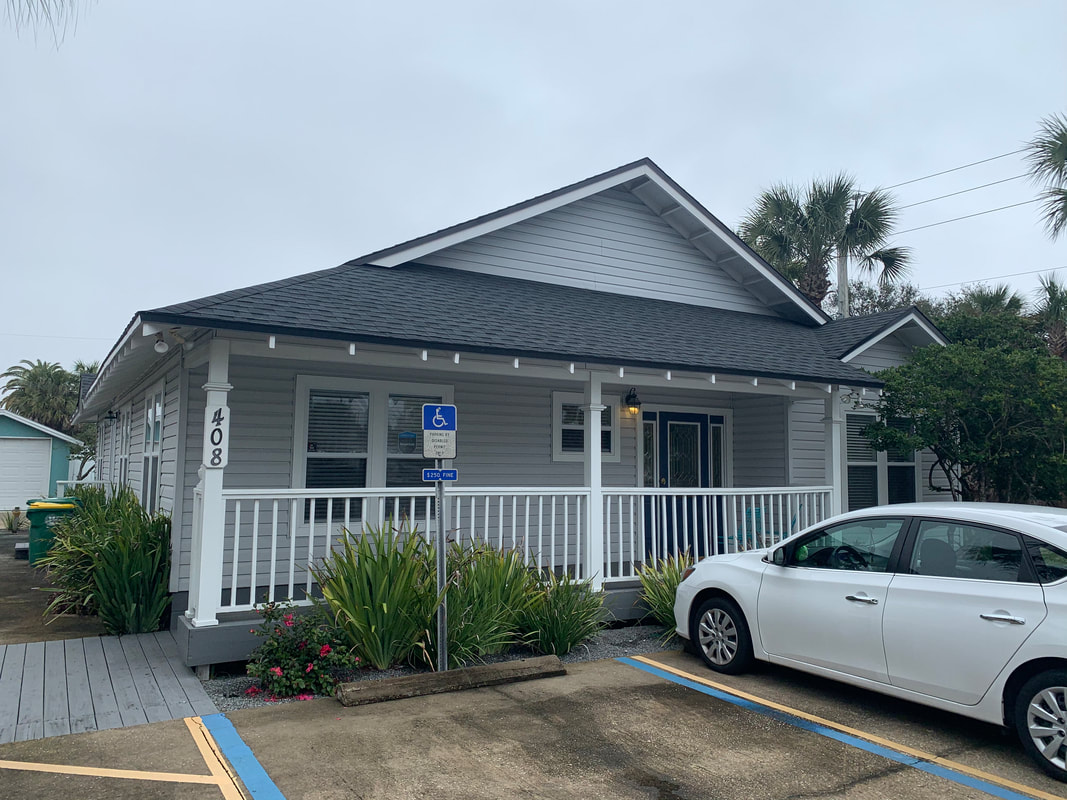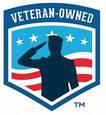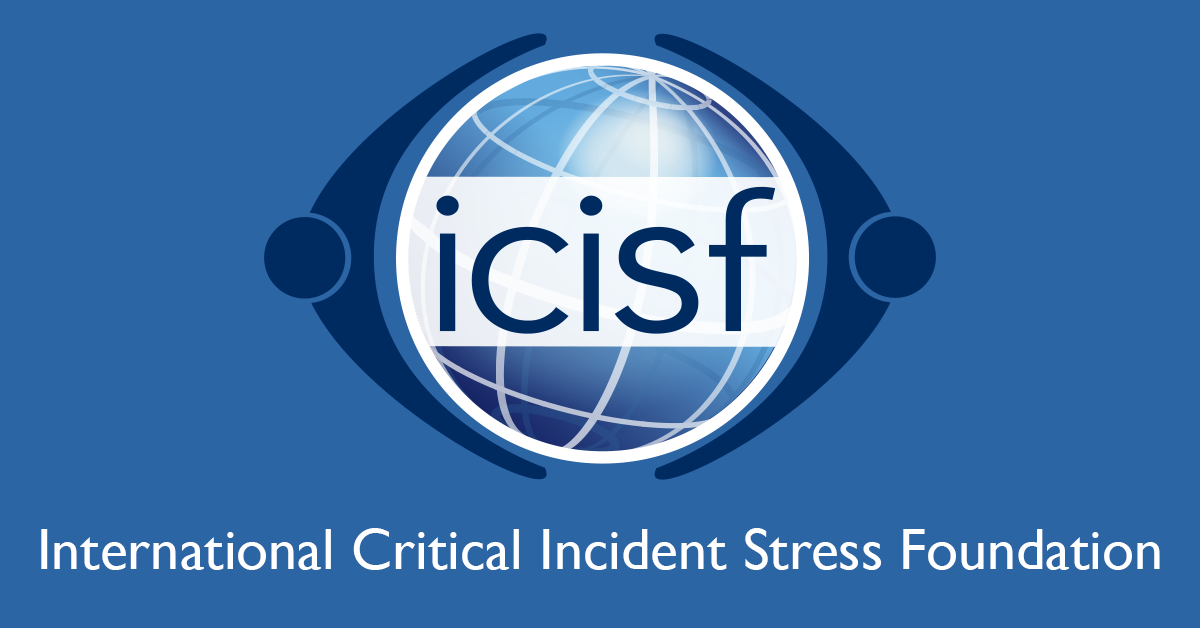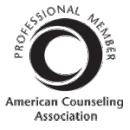|
When thinking about launching a counseling practice in Saint Augustine, I tinkered with forming a "brand new thing." That's when a timely conversation with a friend grabbed my attention.
For the last six years, I've been embedded with a counseling practice in Chattanooga that I have watched grow from the ground up from a single therapist to sixteen. Over ten years later, I am now launching a new initiative with Elbow Tree Florida. As I was toying with whether or not to carry the Elbow Tree torch to Florida from East Tennessee, Greg gave me an image that has really stuck with me. "You won't be rolling into town alone. You will be traveling into town with the strength of an armada behind you." This image of connection, communion and commonality resonates deeply. The human heart is hard wired for connection. In human development, we describe this as the formation of healthy emotional attachments. When there is a wound to attachment in the growing up years, it can greatly impair a person's ability to trust others and limit our assurance of being fully loved. At some time or another, we will all experience the pain of feeling less loved or desired. Husbands, wives, sons and daughters are all vulnerable to this kind of pain. "The only thing more painful than pain is being alone in the pain." Over a decade ago, a friend of mine shared these words as an invitation to me into a new kind of friendship with him. Two years ago, I launched a therapy group for men called TRIBE. My heartbeat is help men find a new way to navigate their anger, fear and pain while exploring in in a context of healthy community how to live more fully from their whole heart. Men are notorious for isolating themselves when they are feeling emotionally overwhelmed. I wrote a blog last year called "Every Man Needs a Tribe." I'd highly recommend reading it. There is this lie that permeates male culture that men must endure emotional pain alone when nearly every other dimension of our lives is marked by traveling in some form of tribe.
Genesis 2:18 and Ecclesiastes 4 unveil God's heart for us. "It is not good for man to be alone." (Gen. 2:18) AND Two are better than one, because they have a good return for their labor: 10 If either of them falls down, one can help the other up. But pity anyone who falls and has no one to help them up. 11 Also, if two lie down together, they will keep warm. But how can one keep warm alone? 12 Though one may be overpowered, two can defend themselves. A cord of three strands is not quickly broken. (Ecc. 4) The invitation into counseling is not to drill on what's wrong with a person, rather it is to explore what is very, very right about you. It is an invitation to experiment with the possibility of being known in ways that will cross-pollinate all of your relationships - with others, with yourself and with God. Men and women both have an unquestionable need to be known. We were not meant to travel alone in that desire. That longing, often experienced as loneliness, was placed within us by a God who shares a similar longing. Even God does not live in isolation. No. God's very nature is communal; Father, Son and Holy Spirit. An enduring fellowship whose image we bear as communal creatures. It can be easy to forget that God is not a singular being. God's invitation to each of us is NOT to become so strong that we do not need others. Instead, we are invited to live, breathe, learn and grow in the context of both human and divine connection. There is no special guarantee that traveling in community will rescue you from pain. But once again, the only thing more painful than pain is being in pain alone. May you travel with the strength and power of an armada.
1 Comment
Two years ago, I went to see The Revenant in the movie theatre with some friends.. I sat on the edge of my seat from the moment the film opened until the credits rolled as I watched this semi-biographical (aka mostly true) story of Hugh Glass unfold..
What struck me most was the resilience of the Hugh G;lass. He endured staggering life threatening circumstances out on the frontier as an experienced fur trapper. Any one of these experiences would have been sufficient to kill a man, yet he survived;
Hugh Glass is "the revenant." The official definition is "a person who has returned, especially supposedly from the dead." In more modern terms, we might say, he is resilient. The American Psychological Association defines resilience as, "the process of adapting well in the face of adversity, trauma, tragedy, threats or significant sources of stress — such as family and relationship problems, serious health problems or workplace and financial stressors. It means "bouncing back" from difficult experiences." Several years ago while serving a non-profit in Chattanooga, I was introduced to the work of the Search Institute. Over two days we were trained in the 40 Developmental Assets. "Search Institute has identified the key building blocks of healthy development—known as Developmental Assets—that help young children grow up healthy, caring, and responsible." The more of these assets a young person possesses correlates to their flourishing later in life and less likely they are to out in a wide range of high risk behaviors. As adults, we are each individually charged with our ongoing lifelong development of resilience in several key areas; emotional, spiritual, relational and financial. According to Search Institute, the majority of these assets that we need are linked to the community around us. If a community embraces serving as a catalyst for investing itself in the lives of young people, the greater likelihood it will have forming strong resilient adults. Resilient adults are most often formed in intentional community. For the last few years, I have been getting together monthly with a couple other men. Since the film's release, we have referred to our gathering as "The Revenant." Our hope is to lift up a spirit of resilience as husbands, fathers and business owners in some specific key areas of our character. We discuss character threats that seek to wipe us out. We believe that resilience is best formed in the context of healthy community and authentic connection. In 2008, a friend invited me to read a book with him called "Deadly Viper Character Assassins." Mike Foster and Judd Wilhite have identirtied 7 deadly character assassins where adults must develop durable character resilience; 1. Careless Decisions 2. Unhealthy Emotions 3. Toxic Busyness 4. Self Deception 5. Sexual Temptation 6. Materialism 7. Egowww.youtube.com/watch?v=IB1grF0uF_Y&t=30s In my work with adolescents and families over the last 20 years, these seven areas seem to be most reflected in what brings clients into counseling. When people experience some brokenness or fallout in any one of these areas, the key to resilience is what Mike Foster describes that we need a way to recover. Mike Foster recommends that when we experience a setback of any kind we must; (1) Admit it authentically. (2) Amend it adequately. (3) Get back to work. ARTICLES PROMOTING RESILIENCE : 10 Traits of Emotionally Resilient People 5 Steps to Help Build Emotional Resilience 10 Ways to Boost Your Emotional Resilience The Road to Resilience Developmental Assets - Discovering What Kids Need to Succeed Why Is Spiritual Growth Often Seen As Backsliding |
ELBOW TREEArchives
July 2023
Categories
All
|

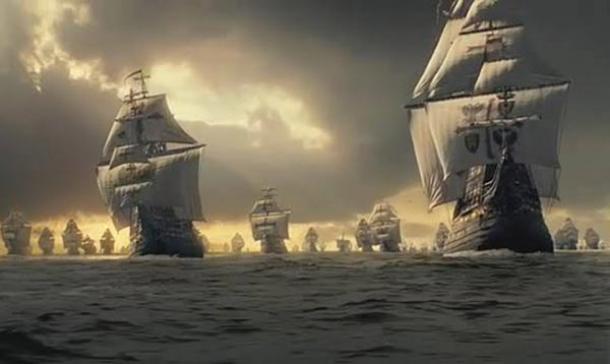

 RSS Feed
RSS Feed
